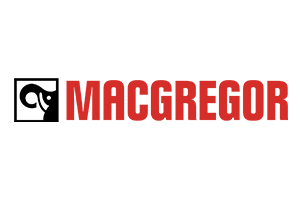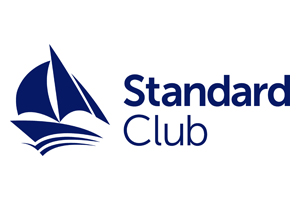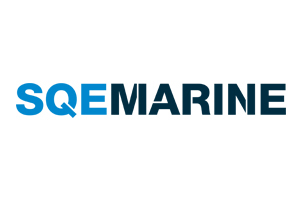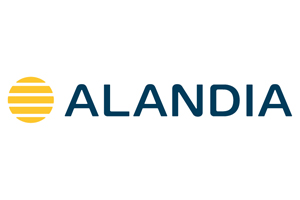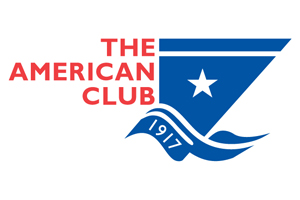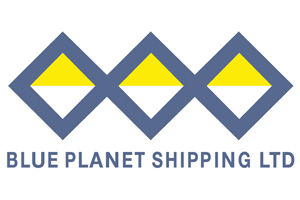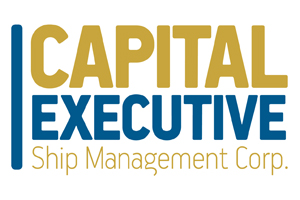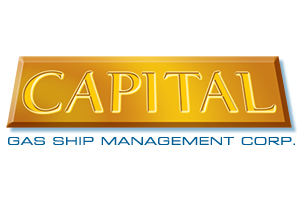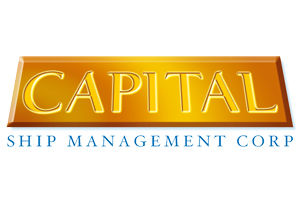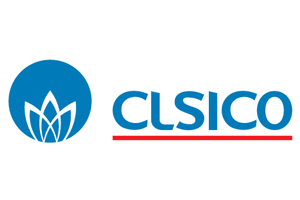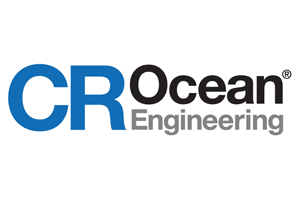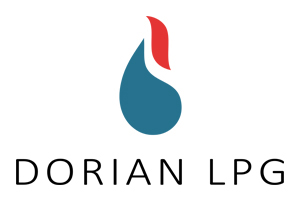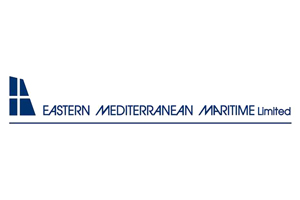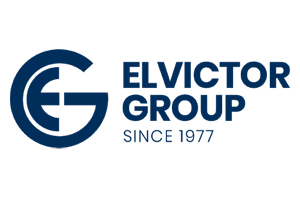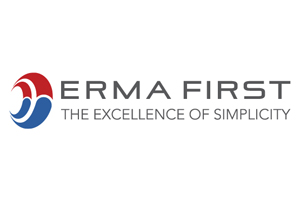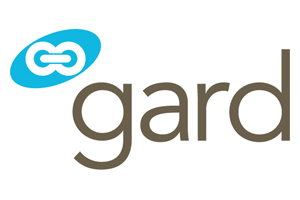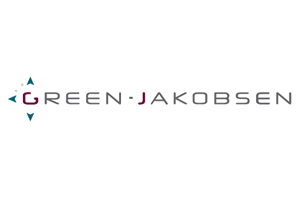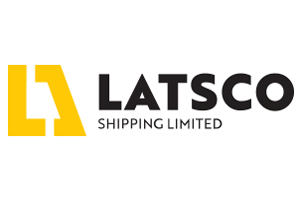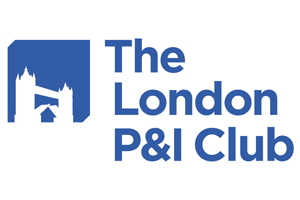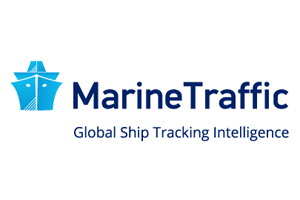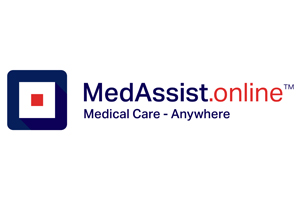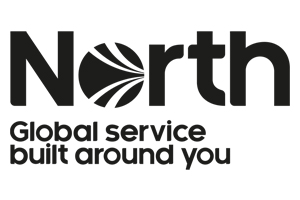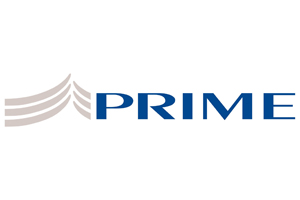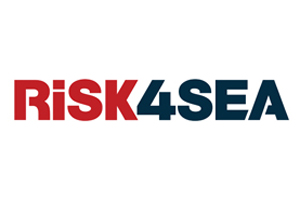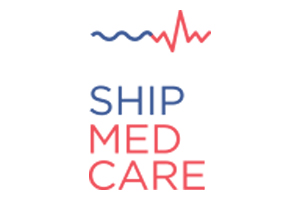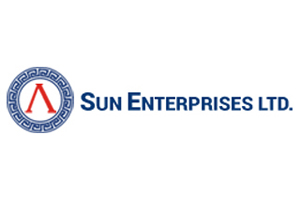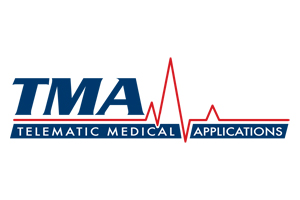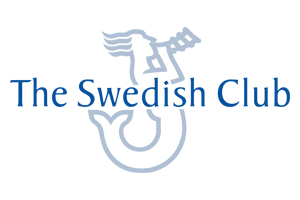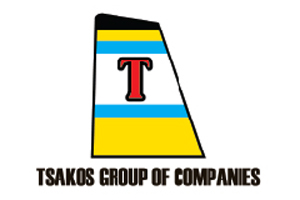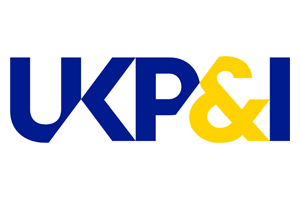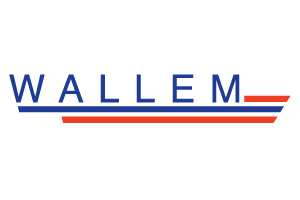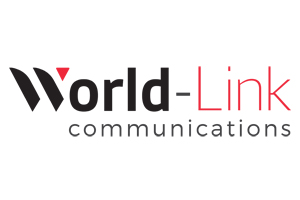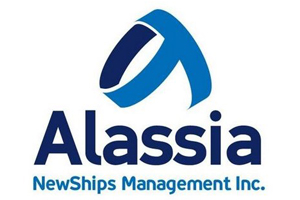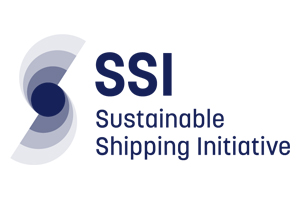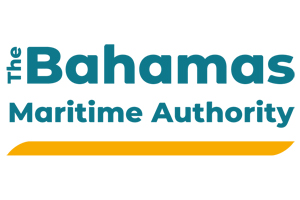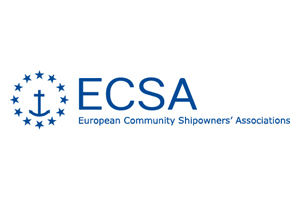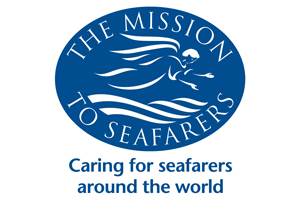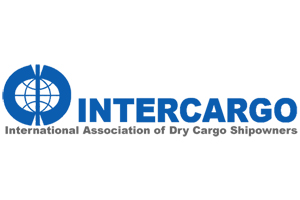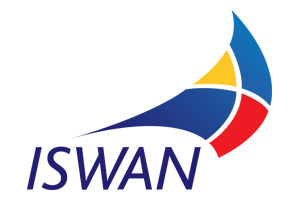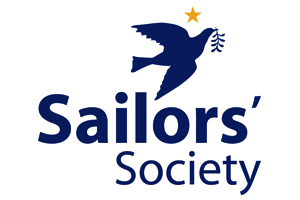Crew Welfare Week 2021
DAY 1 - Tuesday 22 June (All timings at Athens Time, GMT+3)
12:30
Week Opening: Apostolos Belokas, Managing Editor, SAFETY4SEA
Keynote Address: Kitack Lim, Secretary-General, IMO
Keynote Address: Vassilios Demetriades, Shipping Deputy Minister to the President, Republic of Cyprus
13:00
Ship Managers Panel
Moderated by Dorothea Ioannou, Deputy Chief Operating Officer, The American Club
- Stamatis Bourboulis, General Manager, Euronav Ship Management (Hellas) Ltd
- Andy Cook, Global Crew Operations Director, V.Group
- Dimitris Fafalios, Managing Director, Fafalios Shipping
- Boriana Farrar, Vice President - Chief Legal Officer, Patriot Contract Services, LLC
- Capt. Faouzi Fradi, Group Crewing and Training Director, Columbia Shipmanagement Ltd
- Basil Sakellis, Managing Director, Alassia NewShips Management, Inc
14:00
Wellness and Health monitoring
- Gisa Paredes, Chief Operating Officer, WellΑtSea - Cases from The WellAtSea Platform: Key Ingredients to Creating a Sustainable Crew Wellness Program
- Capt. Yves Vandenborn, Director of Loss Prevention, Standard Club - Monitoring Health Onboard
14:30
Physical Wellness Panel
Moderated by Dimitrios Lyrakos, CEO, Filistos ASCOT SA
- Elisabeth Calbari, Founder, Self Balance
- Christian Ioannou, Managing Director, MCTC Marine Ltd
- Capt. Konstantinos G. Karavasilis, Senior Loss Prevention Executive, UK P&I Club
- Capt. Yves Vandenborn, Director Loss Prevention, Standard Club
15:30
Crew Abandonment
-
Chirag Bahri, Director of Regions (India), ISWAN - Crew Abandonment
-
Rachel Bellsham-Revell, Associate Director, London P&I Club - Crew Abandonment: A P&I Perspective
16:00
Mental Wellness Panel
Moderated by Dr. Chris Haughton, Managing Director, Haughton Maritime
- Dr. Pennie Blackburn, Consultant Clinical Psychologist, ISWAN
- Christopher L. Hall, Managing Director, Hong Kong, The American Club
- Dimitra Ilia, Office Administration Manager, The Swedish Club
- Dimitrios Lyrakos, CEO, Filistos ASCOT SA
- Johanna Kull, Loss Prevention Executive, Alandia
- Sophia Onken, Clinical Psychologist & Partner, Mental Health Support Solutions
17:00
Health Monitoring Programs
- Dr. Remko Huigen, Director Strategy and Business Development, MedAssist.online - Monitoring Health Onboard
- Sebastian Nause-Blueml, Co-Founder & Head of Sales, Scoutbase
- Dr. Philip Sotiriades, President & CEO, Telematic Medical Applications Ltd (TMA) - Monitoring Health Onboard
- Periclis Tzardis, Chief Medical Officer, ShipMedCare - Current status of Medical tele-consultation for commercial vessels
17:50
Program of day ends
DAY 2 - Wednesday 23 June
12:15
Day Opening: Apostolos Belokas, Managing Editor, SAFETY4SEA
12:20
Crew Resilience
- Elisabeth Calbari, Founder, Self Balance - Developing Soft Skills for Resilient Crews
- Kostas Katsoulieris, Senior Executive, North P&I Club - Fatigue and Mental Health
- Ariadna Mayoral, Founder, Sea Wellbeing - Onboard Wellbeing, the importance of personalised support to promote Healthy Ships
- Dr. William H. Moore, Global Loss Prevention Director – S.V.P., The American Club - Holistic Approach to Seafarers’ Wellness
13:00
Industry Panel
Moderated by Carleen Lyden Walker, Co-Founder/Executive Director of NAMEPA and IMO Goodwill Maritime Ambassador
- Sara Baade, CEO, Sailors’ Society
- Gerardo A. Borromeo, VP & CEO, PTC Holdings Corporation
- Jillian Carson-Jackson, President, The Nautical Institute
- Martin Dorsman, Secretary General, European Community Shipowners Association (ECSA)
- David Hammond, CEO, Human Rights at Sea
- Tom Jenkins, Deputy Director, Investigations Department, The Bahamas Maritime Authority
- Paul Markides, Marine-Quality Manager, Intercargo
- Capt. M. Segar, Assistant Chief Executive (Operations), MPA Singapore
14:30
Seafarer Health Panel
Moderated by Capt. Yves Vandenborn, Director Loss Prevention, Standard Club
- Dr. Walther Boon, Managing Director, MedAssist.online
- Kostas Katsoulieris, Senior Executive, North P&I Club
- Dr. Claire Pekcan, Director, Safe Marine
- Dr. Philip Sotiriades, President & CEO, Telematic Medical Applications Ltd (TMA)
- Periclis Tzardis, Chief Medical Officer, ShipMedCare
15:30
Mental Health Challenges
- Chirag Bahri, Director of Regions (India), ISWAN - Piracy effect on wellness
- Johan Smith, Project Manager, Sailors’ Society - There’s no vaccine against poor mental health
16:00
Soft Skills Panel
Moderated by Dr. Luiza Shahbazyan, Founder, The Pivot Company
- Ben Bailey, Director of Advocacy and Regional Engagement, The Mission to Seafarers
- Dimitris Fokas, Training Manager, Angelicoussis Shipping Group Limited
- Capt. Dimitris Kalosakas, Group Training Director/Senior Instructor, Elvictor Group
- Panagiotis Kourkoumelis, Training and Development Manager, Kyklades Maritime Corporation
- Capt. VS Parani, HSSEQ Manager, Tufton Asset Management Ltd
- Bill Truelove, Managing Director, CSMART Training Center
17:00
Challenges of Social Life Onboard
- Connie S. Gehrt, Managing Director, CONOVAH - Social Relations and Loneliness
- Hans Hederström, Professor of the Practice, Dep. of Mechanics and Maritime Sciences, Chalmers University of Technology - Psychological Safety
- Capt. Konstantinos G. Karavasilis, Senior Loss Prevention Executive, UK P&I Club - Crew Suicides
- Johanna Kull, Loss Prevention Executive, Alandia - Managing Anxiety and Depression
17:50
Program of day ends
DAY 3 - Thursday 24 June
12:55
Day Opening: Apostolos Belokas, Managing Editor, SAFETY4SEA
13:00
Women at Sea Panel
Moderated by Johanna Kull, Loss Prevention Executive, Alandia
- Capt. Ayse Asli Basak, Co-Founder, SheFarers Platform
- Capt. Jeanine Drummond, Managing Director & Principal Marine Advisor, Integral Maritime
- Capt. Alexandra Hagerty, United States Naval Ships
- Sanjam Sahi Gupta, Founder, Maritime SheEO
- Jenny Matthews, Founder, She of the Sea
- Kathryn Neilson, Director, Merchant Navy Training Board, UK Chamber of Shipping
14:10
Crew Change Challenges
- Nikos D. Marmatsouris, Group Senior Marketing Manager, GAC Shipping SA - Crew Change
14:30
Crew Change Panel
Moderated by Kostas Katsoulieris, Senior Executive, North P&I Club
- Constantinos Galanakis, CEO, Elvictor Group
- Nikos D. Marmatsouris, Group Senior Marketing Manager, GAC Shipping SA
- Georgios Moniodis, Crew & Training Manager, Prime Marine
- George Pitaoulis, Crewing Manager, ABC Maritime
- Christos Sialakoumas, Crew Manager, Dorian LPG
- Nikos Toumazatos, Crew Manager, Latsco Marine Management Inc.
16:00
Crew Vaccinations Panel
Moderated by Maria Mavroudi, Founding Partner, Searock Marine Insurance Brokers
- Iris Baguilat, President, Döhle Seafront Crewing (Manila), Inc.
- Rick Beaumont, Senior Claims Executive, Standard Club
- Capt. Pradeep Chawla, Managing Director, QHSE and Training, Anglo-Eastern Ship Management
- Capt. Vishal Kumar, Nautical Manager, INTERTANKO
- Ioanna Vernardou, DPA / CSO, Blue Planet Shipping Ltd
17:00
Program of day ends
DAY 4 - Friday 25 June (Day of the Seafarer) - Crew Welfare Best Practices
12:55
Day Opening: Apostolos Belokas, Managing Editor, SAFETY4SEA
13:05
The Ship Managers Perspective
- Dimitris Fokas, Training manager, Angelicoussis Shipping Group Limited - Mental Health, Wellbeing, Training & Health Promotion
- Simon Frank, Chief Human Resources Officer, Thome Group - Crew Matters
- Ralph Juhl, Executive Vice President, Technical, HAFNIA - Hafnia Wellness Programme
- Maria Kalogianni, Training Coordinator, Prime Marine - Crew Wellbeing: Practices & Actions
- Sunil Kapoor, Director, Fleet Management Limited - Crew Welfare
- Capt. Michail Malliaros, Fleet Personnel Manager, Euronav Ship Management (Hellas) Ltd. - Crew Wellness Practices
- Stamatis Papagiannopoulos, HSQE Superintendent, Springfield Shipping Co Panama SA - Safety Performance and mental wellbeing during the COVID pandemic
- Eirini Pirpili, Wellness/Gym Manager, Angelicoussis Shipping Group Limited - Mental Health, Wellbeing, Training & Health Promotion
- Dr. Theoharis I. Sinifakoulis, Fleet Medical Advisor, Angelicoussis Shipping Group Limited - Mental Health, Wellbeing, Training & Health Promotion
- Aristonis Trochanis, Soft Skills Expert, Angelicoussis Shipping Group Limited - Mental Health, Wellbeing, Training & Health Promotion
15:00
The Crew Manager Perspective
- Iris Baguilat, President, Döhle Seafront Crewing (Manila), Inc.
- Capt. Dimitris Kalosakas, Group Training Director/Senior Instructor, Elvictor Group - Initiatives: Seafarers’ Health and Safety
- Alexandros Ntoutsoulis, Quality Manager, Elvictor Group
- Alfonso A. Jr. Pablo, Head, People, Family & Community Relations Jr., Magsaysay Maritime Corporation - Challenges brought by the COVID Pandemic
15:30
The Seafarers Perspective
Hear from ocean going seafarers their thoughts on Crew Welfare
- How has the COVID-19 pandemic affected the life of seafarers
- What are the most important elements for wellbeing onboard a ship
- Key priorities with respect to crew wellbeing
- Messages to industry stakeholders (associations, ports, charterers, regulators etc) on how they can improve crew wellbeing
16:30
Crew Welfare Week Closing: Apostolos Belokas, Managing Editor, SAFETY4SEA
The Crew Welfare Week took place virtually from 22 to 25 June 2021, focusing on the vital role that seafarers play for a safer and sustainable shipping as well as the whole trade and economy and highlighting ways to improve their crew welfare considering that the pandemic has added new challenges in their work and daily life onboard.
Crew Welfare is on the top of the agenda of several industry stakeholders with calls from the Industry by the Neptune Declaration on “Seafarer Wellbeing and Crew Change” supported by more than 750 organisations of all types across the industry setting aside the regulatory requirement in many standards (ILO MLC, TMSA, DryBMS).
The event was organized by SAFETY4SEA having as lead sponsors the following organizations: MacGregor, The Standard Club and SQE MARINE. The event was also sponsored by: Alandia, The American Club, Blue Planet Shipping, Capital-Executive Ship Management Corp., Capital Gas Ship Management Corp., Capital Ship Management Corp., China LNG Shipping (International) Co., Ltd (CLSICO) , CR Ocean Engineering LLC, Dorian LPG, Eastern Mediterranean Maritime Limited (EASTMED), Elvictor Group, ERMA FIRST, Gard Club, Green Jakobsen, LATSCO Shipping Limitied, London P&I Club, MarineTraffic, MedAsssist.online, North of England P&I Club, Prime Marine, RISK4SEA, SHIP MED CARE, Sun Enterprises Ltd, Telematic Medical Applications Ltd (TMA), The Swedish Club, Tsakos Group of Companies, UK P&I Club, WALLEM and World Link Communications
Supporters of the event were: Alassia, Döhle Seafront Crewing (Manila), Inc. ECSA, INTERCARGO, ISWAN, Sailors’ Society, Sustainable Shipping Initiative (SSI), The Bahamas Maritime Authority and The Mission to Seafarers.
DAY 1 – Tuesday 22 June
Opening the event, Mr. Apostolos Belokas explained that this unique industry initiative aims to bring together many of the stakeholders to discuss a number of topical issues concerning seafarers who are facing unprecedented circumstances due to the pandemic, embrace the role of the seafarers in shipping and focus on seafarers’ wellness, well-being and prosperity or in other words their welfare. This should be industry’s top priority, Mr. Belokas highlighted and expressed his gratitude to all seafarers who move the world.
A video message from IMO Secretary-General followed on the importance of 2021 Day of the Seafarer and IMO campaign calling for a fair future for seafarers. ‘’Seafarers have always been at the heart of the world trade. Their work touches the lives of each and every one of us, whether it is the food on our tables, the medicine that keep us healthy, the computer we are using for wok and leisure, or the vehicles that transport us in our daily lives. All these items are primarily transported by sea. The ongoing COVID-19 pandemic created challenging working conditions, including difficulties with port access, repatriation, crew changes and more. Despite all difficulties, seafarers have gone beyond the call of duty, working tirelessly to keep global trade flowing. IMO and our partners are doing our part to support seafarers and make sure that they are given the rights and protections of key workers.’’ Mr. Kitack Lim said in his message. Considering that crew change crisis is far from being resolved, IMO Secretary General highlighted that we all must keep seafarers in our hearts and continue to take actions that will return seafaring to normal practices for crew changes.
In a key note speech, Vassilios Demetriades, Shipping Deputy Minister to the President, Republic of Cyprus, highlighted that it is now opportunity to make seafarers, the ‘unsung heroes’, visible across the globe and explained how Cyprus continues to push for safe crew changes and maintain momentum with seafarer vaccinations. Cyprus was one of the first countries worldwide that recognized seafarers as key workers and implemented a formal crew change process. These measures resulted in over 14,000 seafarers being repatriated or able to return to work since May 2020. He also noted that collaboration is the key for the shipping industry which faces momentous changes, navigating the pandemic, the energy transition and constantly evolving regulations and decarbonization targets. In this regard, the entire sector is important to become adaptable and enable resilience now and later. Previously, in an exclusive interview with SAFETY4SEA, Mr Demetriades had explained that Cyprus is currently calling for a mapping exercise to identify the number of vaccines required for seafarers ashore at seafarer supplying countries.
Ship Managers Panel
Currently, hundreds of thousands of seafarers from across the globe have been left stranded working aboard ships beyond the expiry of their initial contracts due to COVID-19 pandemic. In this context, the Neptune Declaration, signed in early 2021, calls for increased collaboration between charterers and ship operators based on the notion that managing crew changes is a shared responsibility.
The event was followed with the Ship Managers Panel moderated by Dorothea Ioannou, Deputy Chief Operating Officer, The American Club. The participants of the panel – Stamatis Bourboulis, General Manager, Euronav Ship Management (Hellas) Ltd; Andy Cook, Global Crew Operations Director, V.Group; Dimitris Fafalios, Managing Director, Fafalios Shipping; Boriana Farrar, Vice President – Chief Legal Officer, Patriot Contract Services, LLC; Capt. Faouzi Fradi, Group Crewing and Training Director, Columbia Shipmanagement Ltd; Basil Sakellis, Managing Director, Alassia NewShips Management, Inc , discussed the challenges and opportunities of the pandemic crisis for the crew welfare and suggested actions for the implementation of Neptune Declaration to move crew welfare to the next level.
‘’From our point of view, it became clear the complete ignorance of the world with regards to seafarers’ vital contribution to the world and the global economy.’’ noted Mr. Basil Sakellis. From a seafarers perspective, Mr. Andy Cook said that there is plenty of uncertainty around. Continuing, Mrs Boriana Farrar mentioned that challenges remain due to differences between the international regime and the different national regimes at port stays. ‘’The biggest challenge from our perspective is the lack of uniformity in regulatory regime; this is an opportunity to spread the message across in order regulators to address this issue.’’ Mrs Farrar said. Then, Mr. Dimitris Fafalios noticed that the uncertainty for the people onboard is equally difficult for the people ashore who are expecting to join ships and support their families. ‘’Equally important to me, was the denial of access to shore for crew medical issues, this is unacceptable. This is an infringement of basic human rights, we don’t see to be able to overcome this yet.’’ he highlighted. Mr. Stamatis Bourboulis agreed that uncertainty is one of the most serious challenges while Mr Bourboulis noticed that nobody was prepared for a pandemic; not only on company level but also on government level. Furthermore, Capt. Faouzi agreed that this crisis increased a lot of pressure and revealed that crew welfare is a must.
Wellness and Health monitoring Panel
According to UN SDG Goal 3, for sustainable development, it is imperative to ensure health and well-being across all ages, and is achievable only through effective and continuous healthcare monitoring. Monitoring can help corporate wellness programs by measuring levels of stress, sleep, and recovery over an extended period of time in order to properly assess well-being.
In this panel, Gisa Paredes, Chief Operating Officer, WellΑtSea presented Cases from The WellAtSea Platform and discussed the key ingredients to creating a Sustainable Crew Wellness Program. Ms Paredes explored how organizational culture can change the promotion of health onboard ships and presented cases in which output showed that when wellness programs become part of the culture, personal ownership and promotion of health behavior continues. Namely, a pilot program, launched in September 2020, revealed that the engagement rates moved from 25% to as much as 57% when vessel captains were given guidance to identify their ambassadors on board and engage regularly. As a result, it was noticed enhanced mental health and stress management, leadership skills, bonding and team work as well as increased self- awareness. Another case revealed that Corporate Social Responsibility programs prove to be quite effective when coupled with gamification techniques and health activities, reaching as much as 75% engagement across the fleet.
Continuing, Capt. Yves Vandenborn, Director of Loss Prevention, Standard Club suggested ways for monitoring health onboard. Firstly, Capt. Vandenborn highlighted the importance of PEME examination and the implementation of thorough medical examination for seafarers before joining ships both for their own benefit but also ship operators’ who could extend the cover of the medical test and contact with their clubs for loyalties and enhanced schemes. Also, he highlighted the importance of providing a healthy lifestyle onboard including both physical and social activities. For example, seafarers should receive training with regards to physical lifestyle to understand why it is important to maintain it onboard. On the other hand, ship operators should provide healthy food choices and activities along with incentives to enhance participation because mental and social well-being are equally important for seafarers and should not be forgotten.
Physical Wellness Panel
The first thing is to learn to love and respect our body. If we are not happy in our body, we are not going to be happy persons; however, people tend to forget that physical wellness is related to mental wellness. Subsequently for life onboard, this mean that unhappy crew can become risk to the safety of the ship.
In this panel, moderated by Dimitrios Lyrakos, CEO, Filistos ASCOT SA, Elisabeth Calbari, Founder, Self Balance; Christian Ioannou, Managing Director, MCTC Marine Ltd; Capt. Konstantinos G. Karavasilis, Senior Loss Prevention Executive, UK P&I Club and; Capt. Yves Vandenborn, Director Loss Prevention, Standard Club shared perspectives on how to ensure the people onboard are provided with services that support their physical wellness and a healthy lifestyle.
All experts agreed that there is a connection between brain and body and especially during this challenging time, many negative emotions may prevail. As such, it is important crew onboard to maintain a healthy physical lifestyle in order to be able to control and balance their brains and emotions. In general , seafarers neglect their physical wellness for various reasons, for example there are no facilities or because they now need to follow protocols and get isolated in their cabins and keep social distancing, it is difficult to think about their physical wellness. However, it is equally important and they need to understand this as well as to receive training on the issue. One of the biggest challenge for people onboard is to get up from bed and dedicate time to exercise and focus on their nutrition. Operators need to be innovative and implement pioneering ways to foster a healthy lifestyle, considering also that the majority of the workforce are millennials who are used to other new approaches and have different requirements.
Crew Abandonment Panel
Many are the cases of seafarers’ abandonment. Abandonment can mean seafarers are left on board a ship that is not being properly maintained and therefore creates an unsafe working environment without the necessary supplies to live. The financial implications to seafarers of being abandoned are usually serious, both for them and their dependents. Where abandoned seafarers do assert their legal rights, fear of not being paid at all can induce them to agree to settle for less wages than they may be contractually entitled to. Recently, the Humans Rights At Sea, in partnership with ReedSmith, issued a report providing guidance to seafarers on how to respond in such cases and where to get help.
In the event, Chirag Bahri, Director of Regions (India), ISWAN referred to recent cases of crew abandonment. According to ILO database; with 85 reported cases of abandonment, 2020 saw a significant increase in cases, owing primarily to COVID-19 restrictions. A similar pattern is expected to continue in 2021, as more than 28 cases have been reported by the end of April. Often left without pay and essential supplies, the abandoned seafarers go through a difficult ordeal. In a recent case in which the seafarer was abandoned for 33 months in a UAE port, the crew narrated that ‘’we were on the mercy of passing by vessels and other agencies for edibles, potable water and temporary provision of electricity’’. Finally, he informed how ISWAN may help, reminding that SeafarerHelp confidential and multilingual helpline is available to report any case of harassment or abuse at sea.
Rachel Bellsham-Revell, Associate Director, London P&I Club referred to the causes of abandonment, i.e. shipowners financial difficulties, economics (more common on older ships at the end of their lives), port restrictions and quarantine rules due to COVID-19 and tackled the issue from the P&I perspective. As explained, ship owners must have compulsory insurance to assist crew members in case of abandonment. In 2014, MLC was extended to provide extra protection for serving crew members and those provisions came into force in Jan 2017. Also, financial security certificates must be provided confirming security is in place for repatriation of abandoned crew and for up to four months outstanding salary and separately compensation for illness or injury.
Mental Wellness Panel
Mentally well people are positive, self-assured and happy. They are in control of their thoughts, emotions and behaviour. This enables them to handle challenges, build strong relationships and enjoy life. For seafarers, a focus on their mental wellness is vital especially now that the pandemic has made their work and life onboard extremely challenging.
The panel was moderated by Dr. Chris Haughton, Managing Director, Haughton Maritime and included discussions of the following participants; Dr. Pennie Blackburn, Consultant Clinical Psychologist, ISWAN; Christopher L. Hall, Managing Director, Hong Kong, The American Club; Dimitra Ilia, Office Administration Manager, The Swedish Club; Dimitrios Lyrakos, CEO, Filistos ASCOT SA; Johanna Kull, Loss Prevention Executive, Alandia and ; Sophia Onken, Clinical Psychologist & Partner, Mental Health Support Solutions.
Experts noted that fear, stress, anxiety, uncertainty, isolation have let negative feelings to prevail affecting mental health onboard. Even before the pandemic, there was an alarming percentage of seafarers with depression and those with suicidal thoughts. The pandemic has exacerbated uncertainty leading to loss of control, aggressive emotions and anxiety. What is more, the flow of information can negatively affect seafarers in the middle of the ocean will not react with logic in bad news. As such, internet is a good tool but also can become dangerous and therefore operators should try to deal with fake news and educate seafarers where to search for valuable information. If we add fatigue to all these, depression is a logical consequence. The solution is to work together as an industry. There are plenty of tools to train the crew, campaigns and many initiatives underway. We need role models and people with human skills and leaders to support crew members. It is important to ask for feedback from crew members in order to have a picture of life onboard. Also, crew members should feel safe to convey to ship operators any problem they may have. Above all, it is important to erase the stigma around and learn to everyone the importance of mental health and how can affect people onboard.
Health Monitoring Programs
In case any health issues arise onboard, it is vital the crew to seek for advice from health and safety specialists and a health monitoring programs can help both seafarers and ship operators to have control of the health status onboard. The purpose of health monitoring is to identify how work and life at sea is impacting seafarer’s health and especially, in these challenging times, it is proved to be more important than ever.
In this regard, a panel of medical experts gave advice on how to plan and implement a health monitoring program for seafarers effectively. Namely, Dr. Remko Huigen, Director Strategy and Business Development, MedAssist.online ; Sebastian Nause-Blueml, Co-Founder & Head of Sales, Scoutbase; Dr. Philip Sotiriades, President & CEO, Telematic Medical Applications Ltd (TMA) and; Periclis Tzardis, Chief Medical Officer, ShipMedCare talked about the benefits of monitoring health onboard and presented cases and alarming trends.
DAY 2 – Wednesday 23 June
Crew Resilience Panel
Ordinarily, life at sea might be viewed as containing too much certainty, with the working environment being overwhelmed with many rules and regulations governing what seafarers can and cannot do. In contrast to their working environment, seafarers’ personal lives, particularly in the current situation, are likely to be associated with too little certainty. The coronavirus has made it very hard to plan and enact crew exchanges, leading to seafarers experiencing a lack of predictability and control over when they will be home, or, when they will be earning.
In this panel, Elisabeth Calbari, Founder, Self Balance; Kostas Katsoulieris, Senior Executive, North P&I Club; Ariadna Mayoral, Founder, Sea Wellbeing; and Dr. William H. Moore, Global Loss Prevention Director – S.V.P., The American Club presented ways to foster resilience onboard and enhance seafarers’ wellness.
Elisabeth Calbari presented ways of developing soft skills for resilient crews. Considering that we process more than 50k thoughts per day, our brain influences our behaviour and interaction. All emotions and skills pass through the brain, she explained thus success starts with an optimized brain to control our emotions. The way our bodies react affects how others perceive us and also our brain chemistry (dopamine, serotonin and oxytocin) that influences our behaviour. So it is important to retain balance in our brain chemistry. According to studies, 25% of accidents involve communication failures, 49% seafarers are more productive when working with a trustworthy officers and when crew staff trust the officer, have more energy. A vessel represents a small community with a captain being the leader. They all represent the culture which should have trust and clarity. Leaders needs to lead by example, recognize others feelings and give constructive feedback. The also have the duty to find and increase seafarers’ capabilities towards resilience, she concluded.
Kostas Katsoulieris focused on how fatigue affects the mental health of crew. He firstly referred to fatigue common signs: poor judgement or decision making; lack of ability to problem solve; reduced reduction time; poor hand-eye coordination; and behavioural or physical changes. Citing the example of Exxon Valdez, he stressed that fatigue can have dangerous implications on safety at sea. Ways to deal with fatigue onboard include among others: ensure that work/rest schedule strictly comply with iLO/MLC/STCW regulations; schedule drills and training to minimize disturbance or rest periods; be aware of the time when the times when the body naturally suffers dips in alertness, eat regular and well balanced meals and keep fit. Also, avoid single- handed watches in hours of darkness, keep BWAS, dead-man alarms etc switched on and avoid sitting on bridge chairs when on watch.
Ariadna Mayoral focused on the importance of providing personalized support to promote positive healthy ships. Adapting to the new normal is a necessity for the industry; well-being onboard has become a priority as figures show that seafarers are exposed to increased stress, having also suicidal thoughts and mental health problems. What is more, with modern technology and automation, crew numbers are decreasing and this may result in isolation and loneliness. On the other hand, social media can also reduce the sense of community onboard vessels and there is the danger of fake news. There are four factors affecting seafarers’ performance and wellbeing; psychological and emotional factors; factors related to health, physique and well-being, stressors typical of the maritime environment and stressors typical to working on a ship. Stress and fatigue are among the most common risk factors for life onboard, she noted and referred to the benefits of promoting healthy ships; for example they have improved working conditions and communication and can decrease potential of negative impact on the environment and the sea.
William Moore presented a holistic approach to seafarer wellness. There are significant challenges to being a seafarer, particularly due to the current pandemic. As such, the Club is devoted to various loss prevention initiatives to advise members on risk control to ensure seafarers are as fully mentally and physically fit to ensure enhance safety onboard. Ship operators need to focus on ways of preventing fatigue and promote good habits and routines for sleep hygiene. What is more, cyber wellness is becoming a key issue; seafarers are happier to be cyber connected to their families, friends and the world at large-scale but there are many dangerous; as such cyber awareness is vital to promote best practices as part to enhance mental wellness. He also referred to the importance of PEME which focus primarily on ensuring seafarers’ physical health prior to deployment, ensuring that seafarers are aware of medical conditions that affect their health while at sea.
Industry Panel
The continuing inability of ship operators to conduct crew changes due to COVID-19 pandemic affects seafarers’ welfare in many aspects. In this context, industry stakeholders have raised their voice in order seafarers to be acknowledged as key workers and progress on prioritizing the COVID-19 vaccination of seafarers.
Moderated by Carleen Lyden Walker, Co-Founder/Executive Director of NAMEPA and IMO Goodwill Maritime Ambassador, a diverse and interesting panel discussed about crew welfare challenges for industry stakeholders. Participants of this panel were: Sara Baade, CEO, Sailors’ Society; Gerardo A. Borromeo, VP & CEO, PTC Holdings Corporation; Jillian Carson-Jackson, President, The Nautical Institute; Martin Dorsman, Secretary General, European Community Shipowners Association (ECSA); David Hammond, CEO, Human Rights at Sea; Tom Jenkins, Deputy Director, Investigations Department, The Bahamas Maritime Authority; Paul Markides, Marine-Quality Manager, Intercargo and; Capt. M. Segar, Assistant Chief Executive (Operations), MPA Singapore.
Sailors’ Society is a global maritime welfare charity, offering ‘Wellness at Sea’ coaching programme which empowers seafarers to look after their own well-being, featuring related application. Mrs Sara Baade explained that they are concerned with those seafarers at sea who are exposed to fatigue, but also with those ashore who cannot join ships and have increased anxiety and uncertainty.
‘’The challenge goes back on how we had planned our business continuity for all activities; no one could ever predict such a global breakdown that disrupted the trade.’’ said Gerardo A. Borromeo and suggested that the pandemic learned us that we need to consider thinking beyond our resources, including also the inter relation among countries in case of emergency.
Continuing, Mrs Jillian Carson-Jackson noted that the ongoing lockdowns and the inability to travel and connect have been among the key challenges. The Nautical Institute is the global body for maritime professionals; back in 2016, one of the first to focus on mental health; in collaboration with HRAS, The NI issued report for managing and improving seafarer mental welfare with focus on post traumatic stress disorder (PTSD).
‘’At a European level, the pandemic showed that we need to harmonize policy measures’’ highlighted Mr. Martin Dorsman, Sec-Gen of ECSA which is continuously raising its voice to resolve the crew change crisis soonest possible.
In turn, Tom Jenkins who is also the head of a recent BMA welfare survey to address the mental health needs of seafarers due to the pandemic, referred that repatriation remains a key challenge. ‘’From our perspective, we try to assess the actual crisis with reliable support; we need to consider all challenges of the pre, the during and the post pandemic crisis, to identify what needs to change for the future’’ he said.
‘’Since the pandemic, for the first time the words human rights and humanitarian crisis were heard in the maritime industry, so there is a blessing in disguise.’’ noticed David Hammond.
Furthermore, Capt Sigar referred to Singapore best practices. ‘’We are happy that many initiatives are coming onboard. We continue vaccination and we work with companies on prioritizing vaccination for seafarers".
Seafarer Health Panel
Unhealthy lifestyle and work-related diseases are the main health related difficulties of seamen. Thus, it is of utmost importance seafarers themselves to keep a balance between work and rest hours and operators to address all risk factors associated with health problems, emergencies and diseases while onboard, as well as to secure urgent medical evacuation and access to medical care for seafarers.
In this panel, moderated by Capt. Yves Vandenborn, Director Loss Prevention, Standard Club, experts shared their perspectives on ensuring that people onboard have a healthy lifestyle and balance in their lives. Participants were: Dr. Walther Boon, Managing Director, MedAssist.online; Kostas Katsoulieris, Senior Executive, North P&I Club; Dr. Claire Pekcan, Director, Safe Marine; Dr. Philip Sotiriades, President & CEO, Telematic Medical Applications Ltd (TMA) and; Periclis Tzardis, Chief Medical Officer, ShipMedCare.
Experts of the seafarer health panel discussed about the key issues affecting seafarers health in general, i.e. quality of sleep, fatigue, medical health of seafarer, drink and alcohol policies of life onboard. Seafarers’ health has been an issue long before the pandemic; maybe it is a blessing in disguise, now that the pandemic brought it into the spotlight, experts agreed and referred to challenges faced due to the pandemic. In general, managing a case of COVID-19 onboard was very challenging; that showcased that here is need of strict implementation of vaccination protocols worldwide and special medical equipment and services. The good news is that awareness is raised, industry can use the momentum to improve towards seafarers’ medical issues. It is important all operators to consider seafarers as key factors of their productivity and as holistic human beings and provide them with modern technologies and services to enhance their social well-being along with their physical and mental. A manning crisis had been already there before COVID-19. There is need for a holistic approach across all industry stakeholders; lets not put fingers on ship owners only, they suggested.
Mental Health Challenges Panel
In times of high stress, many people are overwhelmed with negative feelings and concerns. Especially for seafarers, worrying situations may result in high pressure due to the demanding nature of their work onboard. What is more, separation from family, loneliness, lack of shore leave, fear of criminalization and the simple stress of everyday workload are only a few of the challenging factors for seafarers’ mental health, and even more in times of crisis, such as the COVID-19 pandemic.
In this panel, Chirag Bahri, Director of Regions (India), ISWAN presented the piracy effect on wellness and Johan Smith, Project Manager, Sailors’ Society referred to vaccine challenges.
Chirag Bahri provided a quick update on the rise and fall of Somali piracy and referred to the situation in the Gulf of Guinea where it is observed highly aggressive cargo theft and kidnappings. As explained, ISWAN offers humanitarian support to seafarers and their families in cases of armed robbery and piracy attack. Before incidents, seafarers need training and briefing, knowledge and assurance of their safety. Psychological sessions are also important to seafarers and their families which are provided with professional counselling support by ISWAN during and post release.
Johan Smith talked about an industry wide awareness campaign inviting industry stakeholder to talk about mental health and address the issue and also referred to ‘WellnessAtSea’ program by Sailor’s Society and its benefits. The COVID-19 became a catalyst for mental health. For the future, more pressure will come outside the industry due to technological innovation in healthcare and impact of research. Also, a central database recording seafarers’ mortalities and regulation will eventually come into place to enforce all organizations to invest in well-being solutions.
Soft Skills Panel
Across all industries, the importance of soft skills is acknowledged and even their predominance over technical skills. Experiences and technical skills of course remain important but what is the point if the seafarer has not developed situational awareness, decision making, leadership, teamwork and communication?
The panel, moderated by Dr. Luiza Shahbazyan, Founder, The Pivot Company, focused on the benefits of investing in soft skills development. The following experts participated: Ben Bailey, Director of Advocacy and Regional Engagement, The Mission to Seafarers; Dimitris Fokas, Training Manager, Angelicoussis Shipping Group Limited; Capt. Dimitris Kalosakas, Group Training Director/Senior Instructor, Elvictor Group; Panagiotis Kourkoumelis, Training and Development Manager, Kyklades Maritime Corporation; Capt. VS Parani, HSSEQ Manager, Tufton Asset Management Ltd and; Bill Truelove, Managing Director, CSMART Training Center.
We are moving in the right direction towards soft skills but we have a lot of work to do, panel experts agreed. Seafarers have recognized the need to adapt to the demanding working environment onboard which requires to collaborate with multinational groups; this is a great challenge to them so they tend to show more concern about effective communication, teamwork, collaboration and other soft skills. Also, psychological safety, continuous learning and resilience are among the key soft skills to focus on. In general, there is a demand for a new types of skills. Therefore we need to refresh the soft skills that are already in place; this part of the culture journey. Especially the pandemic highlighted the importance of resilience for both crew onboard and their families. In order to address any gaps with regards to soft skills, there is need of an analysis on a company level as there is not a solution that fits to all. Also, a gap exists in seafarers’ families training , if we are able to train them better and equip them with strategies and mechanisms, seafarers will have better focus on their works. What is more, the positive thinking came to surface; seafarers could now believe that the best things are going to happen, they are not victims, but they have everyone’s support.
Challenges of Social Life Onboard
According to a recent study by ISWAN, regular social interaction on board benefits physical and mental health, happiness and motivation, helps build relationships, teams and trust, improves work safety, and reduces isolation and stress. The research confirmed that social life onboard matters and is of high importance.
Accordingly, experts of this panel – Connie S. Gehrt, Managing Director, CONOVAH; Hans Hederström, Professor of the Practice, Dep. of Mechanics and Maritime Sciences, Chalmers University of Technology; Capt. Konstantinos G. Karavasilis, Senior Loss Prevention Executive, UK P&I Club and Johanna Kull, Loss Prevention Executive, Alandia – Managing Anxiety and Depression reaffirmed the importance of investing in social life and discussed ways to provide a quality approach, addressing important areas of attention.
Connie S. Gehrt highlighted that social relations are important to everyone and defined what it means to feel lonely. Of course, the need for connection varies to different people while it was noticed that due to the pandemic most of us felt quite lonely because we lost activities and contacts with friends. In general, we don’t have to be alone to feel lonely and when it comes to vessel, the interaction sometime may be poor; not listening to others, poor communication, lack of understanding can leave everyone onboard with feeling of loneliness. As such, social interactions matters and it is a common responsibility. Namely, connecting adds to well-being; in this context one should ask and explore similarities and differences; listen with genuine interest; be inviting and show that you care helping other also helps you; take initiatives and support those that do.
Hans Hederström focused on psychological safety which is defined as a climate in order to people feel safe and open to express their ideas and thoughts. There are four stages of psychological safety: inclusion safety, learner safety, contributor safety and challenger safety. To create inclusion safety and trust, leaders should walk around vessel on a regular basis and meet the crew while working. They should listen to people and give praise for work well done. Contributor safety has the objective of developing a specific skill or knowledge. Instructional coaching is not telling people what to do but helping them to discover what to do, so ask questions. Also, a leader needs to remind to people that their work is complex and has a potential of errors, invite input and embrace messages to make it a positive experience for everyone to speak up and share feedback. Overall, psychological safety is needed to establish safety culture as well as for enhancing crew welfare.
Capt. Konstantinos G. Karavasilis provided general data with regards to suicide; according to WHO, 800,000 people die due to suicide every year. This is the second leading cause of death among 15-29 years olds. While 75% of global suicides are reported in low and middle income countries. There are many stressors that can lead to suicidal behaviour such as conflict, disaster, violence and sense of isolation. When it comes to sea, 83% of suicides/ possible suicides have occurred by drowning at sea or port. Top stressors are considered as: low safe manning levels, lack of communal eating and recreation activities, technology and social media, faster turn- around and reduced shore leave, language barriers, COVID-19, crew change and vaccination issues. As such, it is important to raise self-awareness of their own mental health, spot the signs in others, target mental illness, improve living conditions and provide access to assistance.
Johanna Kull mentioned that according to studies, depression, anxiety and depression levels at sea are high. In particular, depression and anxiety are the most common mental health disorders but hopefully there is so much science today that supports mental health pressure. Depression and anxiety are treatable and preventable; however there is still a stigma around and not many people feel confident to talk about their situation. In order to prevent those conditions, it is vital to talk about it and give supportive tools. For instance, operators should to provide related online courses to everyone at sea in order to learn about mental health, emotional well-being, nutritrion, physical health and all factors affecting their health. Overall, it is everyone ‘s responsibility to ensure that each crew member feels socially included both at work and in their free time. We all of us have a responsibility to take the initiative to make a positive contribution to the workplace.
DAY 3 – Thursday 24 June
Women at Sea Panel
As industry is continuing its efforts to change the perception which suggest that shipping is too technical for women and women will not manage to succeed in a male dominated field, we now see more women serving onboard ships. However, there is still a large gender gap and on board the ships, the recruitment and the retention of female seafarers remains an area which needs much improvement. Furthermore, industry needs to think what changes are required in order ship to become a friendly environment for women as well.
In this panel, moderated by Johanna Kull, Loss Prevention Executive, Alandia, participants – Capt. Ayse Asli Basak, Co-Founder, SheFarers Platform; Capt. Jeanine Drummond, Managing Director & Principal Marine Advisor, Integral Maritime ; Capt. Alexandra Hagerty, United States Naval Ships; Sanjam Sahi Gupta, Founder, Maritime SheEO; Jenny Matthews, Founder, She of the Sea; Kathryn Neilson, Director, Merchant Navy Training Board, UK Chamber of Shipping shared their perspectives on how the maritime industry to become more attractive for women.
Currently, the numbers are low; less than 2% of the total seafarers are women. All female experts of this panel agreed that increasing women participation within industry is vital; this will bring another era to the industry and if we observe other sectors, we can only see benefits from their diversity actions. Among many, women can bring to the table high intelligence and consciousness skills, they can inspire and make a difference in the process of transforming the industry. However, when it comes to seafaring, there is a stereotype. High female participation can help towards and change these stereotypes which usually are being followed by high risk of discrimination and harassment. As such, industry needs to remove any barriers and focus on education at early stage. Putting a male and female seafarer together can make a huge difference but it is important to promote female roles at early age and inform about the benefits and exciting career paths that a life onboard has. Overall, a real gender inclusion comes when organizations put women in management/ leadership roles; as such organizations need to embrace best practices. For example, job descriptions need update as well as corporate policies with regards to harassment/ bullying. There is a need for equal opportunities and networks can help towards. However, we also need to bring men to the journey to highlight that they have the same challenges, panelists highlighted.
Crew Change Challenges
Nikos D. Marmatsouris, Group Senior Marketing Manager, GAC Shipping SA provided an overview of the Crew Change situation and highlighted other challenges due to the pandemic for shipping, such as there is no international standard for regulations, health officials/ authorities do not fully understand how shipping works, there is huge bureaucracy and regulations change every day. The lack of international flights has make it difficult to impossible to resolve the crew change crisis, he highlighted. Although various maritime organizations are trying to assist seafarers by pleading to governments to consider them as ‘key workers’; most countries in the Middle East and Far East make it difficult, especially now with the Indian variant. With crew staying onboard for extended periods, new initiatives have been introduced for seafarers’ mental well-being, he noted and referred to few of them.
Crew Change Panel
The unresolved crew change crisis remains a hot topic of discussion, with many seafarers remaining stranded on seas. The difficulties surrounding repatriation and crew changes have a major impact on crew welfare and the whole industry expresses its concern about the growing humanitarian and safety crisis facing seafarers around the world, urging all countries to formally designate seafarers and other marine personnel as “key workers”. As of May 20th, IMO has received 60 notifications from IMO Member States and Associate Members that they have designated seafarers as key workers.
The panel was moderated by Kostas Katsoulieris, Senior Executive, North P&I Club and included the following participants: Constantinos Galanakis, CEO, Elvictor Group; Nikos D. Marmatsouris, Group Senior Marketing Manager, GAC Shipping SA; Georgios Moniodis, Crew & Training Manager, Prime Marine; George Pitaoulis, Crewing Manager, ABC Maritime; Christos Sialakoumas, Crew Manager, Dorian LPG and; Nikos Toumazatos, Crew Manager, Latsco Marine Management Inc.
Experts of this panel referred to the many challenges that the pandemic has brought. Shipping industry had been struggling with manning crisis as there was inability to recruit and retain people, with mental health and fatigue even before COVID-19. The pandemic made the situation worse and now on the one hand, we face global restrictions and on the other, challenging regulatory updates. There are also heightened risks of fatigue and maritime accidents, denial of access to medical facilities and overall, due to crew change crisis, seafarers remain stuck onboard for many months. A big problem is that people outside the industry may not be able to realize what this means. As such, along with challenges the pandemic also brought opportunities for harmonization of procedures, focus on seafarers’ important role and designate them as key workers, collaboration among different stakeholders and across different sectors, embracing digitalization. Unfortunately, uncertainty prevails – some ports are open while others not, there are green lanes but countries such as China prohibit crew change – all these are making the situation even more difficult for the seafarers, extending the crew change crisis. Also, the experts provided feedback on their relationship with charterers which was challenged significantly during the pandemic; everyone faced difficulties as they had to cope with unexpected medical issues, but the pandemic taught us some very valuable lessons to move forward, such as: shipping is a global industry and we need to think out of the box in order to face any emergencies; shipping is evolving, thus we need to improvise and keep pushing to make noise and communicate issues.
Crew Vaccinations Panel
Efforts to provide COVID-19 vaccinations for seafarers are continuing to accelerate. Most recently, during IMO MSC 103, a resolution on recommended action to prioritize COVID-19 vaccination of seafarers was adopted with a view to consider exempting seafarers from any national policies requiring proof of vaccination during travels, and develop plans, to provide the necessary infrastructure and facilities. Until today, few are those operators who have managed to vaccinate their entire crew, while the unions continue to call for efforts to make the vaccines more widely available.
The panel was moderated by Maria Mavroudi, Founding Partner, Searock Marine Insurance Brokers and included the following participants: Iris Baguilat, President, Döhle Seafront Crewing (Manila), Inc.; Rick Beaumont, Senior Claims Executive, Standard Club; Capt. Pradeep Chawla, Managing Director, QHSE and Training, Anglo-Eastern Ship Management; Capt. Vishal Kumar, Nautical Manager, INTERTANKO and; Ioanna Vernardou, DPA / CSO, Blue Planet Shipping Ltd.
The panelists shared their experience with crew vaccination and disruptions faced due to restrictions. As explained, vaccination onboard required procedures and risk assessment and a single dose vaccine was highly preferable, as a ship operator said. In general, the lack of protocols and the uncertainty of how much is the quarantine across the countries bring extra challenges. Despite efforts and declarations signed, Flags and Port States need to take action as there are still restrictions. Vaccine passports and certificates will help seafarers’ free movement; currently, EU has introduced and implemented such certificates for the EU countries but a global approach is required to resolve the situation which has become quite complex; in that regard, experts urged for prompt harmonization and collaboration among different stakeholders. Once again, the challenging relationship between operators and charterers was discussed.
DAY 4 – Friday 25 June (Day of the Seafarer) – Crew Welfare Best Practices
In the fourth day of the event, which coincided with the Day of the Seafarer, a variety of perspectives were heard from ship managers, crew managers and seafarers. Reflecting on the criticism about the ineffectiveness of the industry to provide for crew change and vaccination, June 25th is seafarers’ international day when we all express our gratitude to seafarers for the crucial role they play for our industry and the global trade in general!
All participants of the event raised their voice to thank our seafarers for their extraordinary efforts to keep the world moving during such difficult times! On the occasion, SAFETY4SEA published a special column asking feedback from many industry stakeholders on crew welfare. For the closure of the event, a video gave voice to ocean going seafarers who shared their thoughts on Crew Welfare from first hand experience. Namely, they discussed how the COVID-19 pandemic has affected their life, what needs to be changed for their well-being onboard a ship, what should be industry’s key priorities with respect to crew well-being to move forward.
Also, the following ship operators presented initiatives and actions of their organizations showcasing that crew welfare is a top priority: Dimitris Fokas, Training manager, Angelicoussis Shipping Group Limited; Simon Frank, Chief Human Resources Officer, Thome Group; Ralph Juhl, Executive Vice President, Technical, HAFNIA; Maria Kalogianni, Training Coordinator, Prime Marine; Sunil Kapoor, Director, Fleet Management Limited; Capt. Michail Malliaros, Fleet Personnel Manager, Euronav Ship Management (Hellas) Ltd.; Stamatis Papagiannopoulos, HSQE Superintendent, Springfield Shipping Co Panama SA; Eirini Pirpili, Wellness/Gym Manager, Angelicoussis Shipping Group Limited; Dr. Theoharis I. Sinifakoulis, Fleet Medical Advisor, Angelicoussis Shipping Group Limited; and Aristonis Trochanis, Soft Skills Expert, Angelicoussis Shipping Group Limited.
Similarly, the following crew managers presented actions in favour of seafarers’ health and safety: Iris Baguilat, President, Döhle Seafront Crewing (Manila), Inc.; Capt. Dimitris Kalosakas, Group Training Director/Senior Instructor, Elvictor Group; Alexandros Ntoutsoulis, Quality Manager, Elvictor Group; and Alfonso A. Jr. Pablo, Head, People, Family & Community Relations Jr., Magsaysay Maritime Corporation.
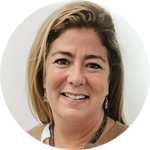
Sara Baade
CEO
Sailors Society


Iris Baguilat
President
Döhle Seafront Crewing (Manila), Inc.


Chirag Bahri
Director of Regions (India)
ISWAN


Ben Bailey
Director of Advocacy and Regional Engagement
The Mission to Seafarers


Capt. Ayse Asli Basak
Co-Founder
SheFarers Platform


Rick Beaumont
Senior Claims Executive
Standard Club

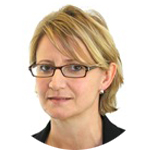
Rachel Bellsham-Revell
Associate Director
London P&I Club

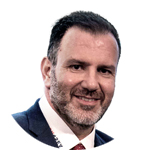
Apostolos Belokas
Managing Editor
SAFET4SEA


Dr. Pennie Blackburn
Consultant Clinical Psychologist
ISWAN


Dr. Walther Boon
Managing Director
MedAssist.online


Gerardo A. Borromeo
Vice-Chairman/Chief Executive Officer
PTC Holdings Corporation

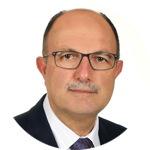
Stamatis Bourboulis
General Manager
EURONAV Ship Management (Hellas) Ltd.

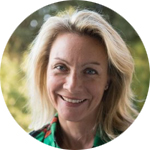
Elisabeth Calbari
Founder
Self Balance


Jillian Carson-Jackson
President
The Nautical Institute

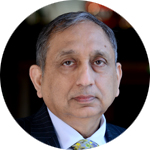
Capt. Pradeep Chawla
Managing Director, QHSE and Training
Anglo-Eastern Ship Management Ltd


Andy Cook
Global Crew Operations Director
V.Group

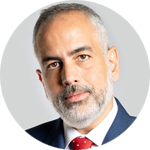
Vassilios Demetriades
Shipping Deputy Minister to the President
Republic of Cyprus


Martin Dorsman
Secretary General
ECSA

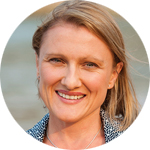
Capt. Jeanine Drummond
Managing Director & Principal Marine Advisor
Integral Maritime

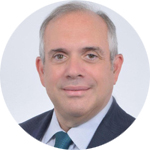
Dimitrios Fafalios
Managing Director
Fafalios Shipping


Boriana Farrar
Vice President, Chief Legal Officer
Patriot Contract Services, LLC


Dimitris Fokas
Training Manager
Angelicoussis Shipping Group Limited


Capt. Faouzi Fradi
Group Crewing and Training Director
Columbia Shipmanagement Ltd


Simon Frank
Chief Human Resources Officer
Thome Group

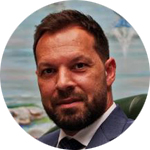
Constantinos Galanakis
CEO
Elvictor Group

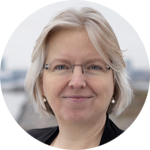
Connie Gehrt
Managing Director
CONOVAH

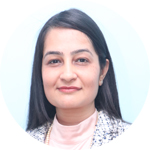
Sanjam Sahi Gupta
Founder
Maritime SheEO


Capt. Alexandra Hagerty
United States Naval Ships


Christopher L. Hall
Managing Director, Hong Kong
The American Club

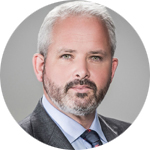
David Hammond
Chief Executive Officer
Human Rights at Sea


Dr. Chris Haughton
Managing Director
Haughton Maritime


Capt. Hans Hederström
Professor of the Practice, Dept. of Mechanics and Maritime Sciences
Chalmers University of Technology


Dr. Remko Huigen
Director Strategy and Business Development
MedAssist.online

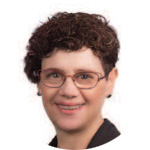
Dimitra Ilia
Office Administration Manager
The Swedish Club


Christian Ioannou
Managing Director
MCTC Marine Ltd

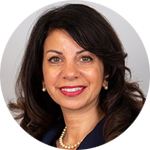
Dorothea Ioannou
Deputy Chief Operating Officer
The American Club


Tom Jenkins
Deputy Director, Investigations Department
The Bahamas Maritime Authority


Ralph Juhl
Executive Vice President, Technical
HAFNIA


Maria Kalogianni
Training Coordinator
Prime Marine

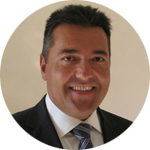
Capt. Dimitris Kalosakas
Group Training Director/Senior Instructor
Elvictor Group

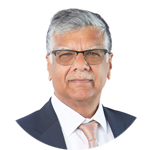
Sunil Kapoor
Director
Fleet Management Limited


Capt. Konstantinos G. Karavasilis
Senior Loss Prevention Executive
UK P&I Club


Kostas Katsoulieris
Senior Executive
North P&I Club


Panagiotis Kourkoumelis
Training and Development Manager
Kyklades Maritime Corporation


Johanna Kull
Loss Prevention Executive
Alandia


Capt. Vishal Kumar
Nautical Manager
INTERTANKO


Kitack Lim
Secretary General
IMO

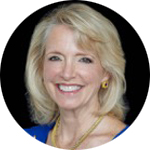
Carleen Lyden Walker
Co-Founder/Executive Director
NAMEPA
IMO Goodwill Maritime Ambassador

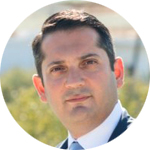
Dimitrios Lyrakos
Chief Executive Officer
Filistos ASCOT SA


Capt. Michail Malliaros
Fleet Personnel Manager
EURONAV Ship Management (Hellas) Ltd.


Paul Markides
Marine-Quality Manager
Intercargo


Nikos D. Marmatsouris
Group Senior Marketing Manager
GAC Shipping SA

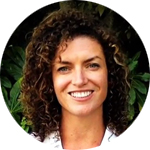
Jenny Matthews
Founder
She of the Sea

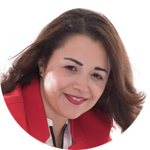
Maria Mavroudi
Founding Partner
Searock Marine Insurance Brokers


Ariadna Mayoral
Founder
Sea Wellbeing


Georgios Moniodis
Crew & Training Manager
Prime Marine


Dr. William H. Moore
Global Loss Prevention Director - S.V.P.
The American Club


Sebastian Nause-Blueml
Co-Founder & Head of Sales
Scoutbase

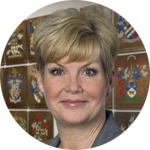
Kathryn Neilson
Director, Merchant Navy Training Board
UK Chamber of Shipping


Alexandros Ntoutsoulis
Quality Manager
Elvictor Group


Sophia Onken
Clinical Psychologist/Partner
Mental Health Support Solutions GmbH


Alfonso A. Jr. Pablo
Head, People, Family & Community Relations
Magsaysay Maritime Corporation


Stamatis Papagiannopoulos
HSQE Superintendent
Springfield Shipping Co Panama SA


Capt. VS Parani
HSSEQ Manager
Tufton Asset Management Ltd.
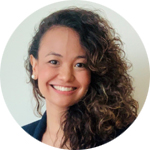
Gisa R. Paredes, M.A., RPsy
Chief Operating Officer
WellAtSea

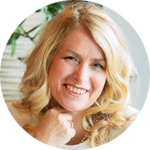
Dr. Claire Pekcan
Director
Safe Marine


Eirini Pirpili
Wellness/Gym Manager
Angelicoussis Shipping Group Limited


George Pitaoulis
Crewing Manager
ABC Maritime

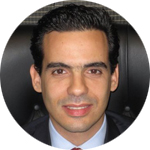
Basil Sakellis
Managing Director
Alassia NewShips Management, Inc
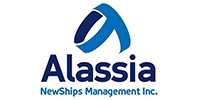
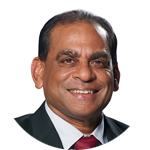
Capt. M. Segar
Assistant Chief Executive (Operations)
MPA Singapore


Dr. Luiza Shahbazyan
Founder
The Pivot Company


Christos Sialakoumas
Crew Manager
Dorian LPG


Dr. Theoharis I. Sinifakoulis
Fleet Medical Advisor
Angelicoussis Shipping Group Limited


Johan Smith
Project Manager
Sailors’ Society


Dr. Philip Sotiriades
President & CEO
Telematic Medical Applications Ltd (TMA)

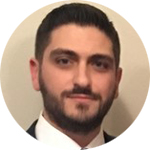
Nikos Toumazatos
Crew Manager
Latsco Marine Management Inc.


Aristonis Trochanis
Soft Skills Expert
Angelicoussis Shipping Group Limited


Bill Truelove
Managing Director
CSMART Training Center

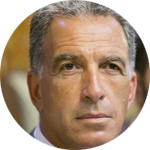
Periclis Tzardis
Chief Medical Officer
ShipMedCare


Capt. Yves Vandenborn
Director of Loss Prevention
Standard Club


Ioanna Vernardou
DPA / CSO
Blue Planet Shipping Ltd

Lead Sponsors
MacGregor
MacGregor is a family of innovators. By offering engineering solutions and services for handling marine cargoes and offshore loads we make the sea more accessible, safe and reliable for those whose livelihood depends on the changing conditions of the sea. To enable that we have a variety of strong product brands and committed experts with a passion for solving challenges – and the power of the sea is sure to provide those.
Standard Club
Standard Club is a specialist marine and energy insurer known for its diverse membership, pioneering loss prevention expertise and attractive pricing. Solutions oriented underwriters work alongside proactive technical and legal experts who advise members on how to prepare for new regulations and implement best practice.
At Standard Club, we build relationships by really getting to know our customers, including gaining a detailed knowledge of their operations, a full understanding of their priorities and a complete picture of the potential risks and challenges they face. This helps to guarantee our members get immediate, proactive and comprehensive support wherever, whenever.
- Underwriting - We provide protection and indemnity cover and associated insurances for shipowners, charterers and offshore energy operators. We are S&P ‘A’ rated and one of the premier mutual P&I insurers by tonnage and membership.
- Risk Management - Our teams of marine and technical experts provide advice and best practices that underpin our ability to manage risks, deliver value and sustain financial security.
- Response - Through offices in major hubs and a network of correspondents we cover the globe, responding to incidents with practical advice and ongoing support to resolve matters as positively as possible.
We are always by your side.
SQE Marine
SQE Marine is a leading provider of Safety, Quality and Environmental Solutions providing Consulting, Training and Information products in these areas. We have been successfully providing a product and service range to more than 1,400 clients (based in 75+ countries) over the last 23 years, operating a DNV Certified Training Center and a LR ISO 9001 certified management system.
Strong enough to provide immediate response and feedback to all client queries and needs, we provide a range of competitively priced services and timeliness for product / service delivery; we provide foolproof products and services to ensure full after sales support for as long as necessary. Last but not least, technical competence is the core of our management system & operations.
Our vision is to be a leading world class corporation that provides reliable maritime solutions in the areas of Quality, Health, Safety, Environmental, Crisis, Security, and Risk Management. Our mission, therefore, is to provide real life, effective and efficient maritime solutions range including Consulting, Training and Information provision in order to maximize client benefit and minimize risk.
Sponsors
Alandia
Alandia, founded in 1938, is one of the leading marine insurance providers in the Nordic countries. We offer a broad variety of insurance services and products to the global commercial marine sector and boat insurance for consumers in the Nordics. We offer insurance services and products to the global commercial marine sector.
American Club
Founded in 1917, the American Club is dedicated to identifying and empowering local talent in all the world’s major shipping hubs. Awards like the Lloyd’s List Next Generation Shipping Award, North American Maritime Services Award, and the Seatrade “Investment in People” Award recognize that. Homegrown capacity gives the Club regional maritime know-how - available 24 hours a day - able to communicate in no less than eleven languages. It offers full mutual cover for P&I, FD&D risks, fixed premium insurance for smaller tonnage through Eagle Ocean Marine, as well as Hull and Machinery cover through its subsidiary, American Hellenic Hull Insurance Company Ltd. The Club also boasts an unsurpassed safety and loss prevention program. Its rich reserves of expertise enable it to typically exceed the service expectations of shipowners and charterers both large and small. Local service providing global solutions steers the Club into its next century of service excellence.
Blue Planet Shipping Ltd.
We are focused on providing our clients with exceptional technical and commercial ship management services. Having developed a deep understanding of the highly competitive shipping industry over the years, we seek to increase value and improve performance by offering the best possible resources, technology and network. Established mainly as a crewing office, Blue Planet Shipping grew steadily over the years to provide our clients with the full portfolio of ship management services. Our clients are third generation Greek shipping families originating from the island of Chios.
Capital-Executive Ship Management Corp.
Capital-Executive Ship Management Corp. (‘Capital-Executive’) currently operates a fleet of 23 vessels including 5 modern bulk carriers and 18 container carriers with a total dwt of tons approx. The fleet under management includes vessels of Nasdaq-listed Capital Product Partners L.P. The Capital-Executive team has extensive experience in managing various vessel types and sizes. The Company offers comprehensive services in every aspect of ship management including: safety and technical management, claims & insurance, bunkering, risk assessment, newbuilding design and supervision, IT services, accounting, financial management and other administrative functions, as well as in-house human resources management, such as crewing and personnel training with state-of-the-art technology.
Capital Gas Ship Management Corp.
Capital Gas Ship Management Corp. is a ship management service provider, currently operating a fleet of 7 modern LNG Carriers with a total carrying capacity of approximately 1.2 million cubic meters.
Our team consists of highly skilled personnel with extensive experience in the LNG Sector with experience, Mariners / Naval Architects (50 years cumulative experience in LNG) from initial design and newbuilding supervision to LNGCs operations and technical management.
The Company offers comprehensive services in every aspect of ship management including: safety and technical management, claims & insurance, bunkering, vetting preparation and attendance, risk assessment, newbuilding design and supervision, IT services, accounting, financial management and other administrative functions, as well as in-house human resources management, such as crewing and personnel training with state-of-the-art technology.
Capital Ship Management Corp.
Capital Ship Management Corp. (‘Capital’) is a distinguished oceangoing vessel operator, offering comprehensive services in every aspect of ship management, currently operating a fleet of 52 vessels including 45 tankers (10 VLCCs, 3 Suezmaxes, 5 Aframaxes, 26 MR/Handy product tankers and 1 small tanker) and 7 LNG Carriers with a total dwt of 5.94 million tons approx. The fleet under management includes vessels of NYSE-listed Diamond S Shipping Inc. Capital has extensive experience in managing various vessel types and sizes including all tanker segments (VLCC, Suezmax, Aframax/LR2, Panamax/LR1, MR/Handy and small tankers), dry bulk segments (Cape, Panamax, Handymax and Handy), as well as OBOs and containers.
CLSICO
China LNG Shipping (International) Co., Ltd. (CLSICO) was established in July 2004 as a joint venture between COSCO, China Merchants and BP Shipping, initially to serve China’s first LNG import project in Guangdong. Now also delivering to terminals in Fujian and Shanghai, we continue to be dedicated to serve Chinese LNG imports. Our mission is to operate LNG ships to the highest international standards while supporting the development of the LNG industry in China.
CR Ocean Engineering LLC
For over sixty years, CR engineers have provided solutions for those who face the challenge of efficient resource utilization and the responsibility for meeting the most stringent emission standards. While current and proposed regulations call for swift compliance, the imperative of efficient resource utilization has become standard operating procedure throughout the world. Regardless of the pollutant or the industrial source, our team has demonstrated the engineering knowhow and applications experience to design and manufacture systems to meet the most demanding performance requirements. CR Ocean Engineering LLC is an enterprise formed for the specific purpose of bringing those resources to bear on the challenge of exhaust gas emission control at sea. CR Ocean EngineeringLLC offers its proven exhaust gas scrubbing technology as an economic alternative to the high priced low sulfur fuel. Our systems provide the necessary reliability and the assurance of meeting the 0.1% Sulfur fuel equivalency when burning high-sulfur lower cost fuels. CR Ocean Engineering exhaust gas scrubbing technology is ideal for cruise ships, ferries, bulk carriers, containerships, RoRo and others.
Dorian LPG
Dorian LPG is a pure-play LPG shipping company and a leading owner and operator of modern VLGCs. Dorian LPG currently has four modern VLGCs and one pressurized LPG vessel on the water. Dorian LPG has 18 ECO VLGC newbuildings due for delivery in 2014, 2015 and 2016 from HHI and Daewoo Shipping and Marine Engineering Ltd., including the 13 that it acquired from Scorpio Tankers. Dorian LPG has offices in Connecticut, London, and Piraeus.Dorian LPG is incorporated in the Republic of The Marshall Islands.
Eastern Mediterranean Maritime Limited (EASTMED)
EASTMED is a ships management company with head offices in Glyfada (Athens), Greece. Presently the company has under management 78 vessels, employs 200 shore based personnel and a further 3000 seagoing staff. The fleet comprises of 29 tankers, 39 dry bulk carriers and 10 container ships, adding up to a total DWT capacity of 7.2 million tons. Principally both the tankers and the dry cargo vessels are employed on the spot market and occasionally will enter into short period charter agreements on a number of ships of the fleet.
The following overseas companies are employed as exclusive agents of EASTMED:
- Intermar Chartering (UK) Ltd. in London, U.K.: Covers the London chartering market.
- Eastern Mediterranean Manning Agency in Manila, Philippines: Directly selects, trains, and employs Filipino Masters, Officers, and Crew exclusively for the vessels under EASTMED’s management.
EASTMED was granted by Lloyd’s the ISO 9001, ISO 14001 and OHSAS 18001 certification in December 2010 and is in the process of being certified with ISO 50001 within 2016. EASTMED is presently a member of BIMCO, INTERTANKO and INTERCARGO, thus joining forces for improved standards in the industry. EASTMED voluntarily participates to AMVER reporting system, operated by the US Coast Guard for promoting safety of life and property at sea. Managed vessels are honored with AMVER awards on an annual basis.
Elvictor Group
Redefining Crew Management Practice
In 2001 Elvictor Group (Cyprus) undertook the challenge to strategically invest in digital technologies and required platforms, in order to alter significantly the Crew Management Business model, which resulted in new revenue and operational efficiencies for our Principals along with logistical digitalization & value producing opportunities for Elvictor Branches, Seafarers and Elvictor Headquarters (Cyprus).
ERMA FIRST
ERMA FIRST, a reliable partner for shipyards and ship-owners over the years, is investing in continuous R&D to manufacture new products according to the future needs of the market. We are committed to carry on delivering on time, commissioning on time, maintain our 100% successful commissioning and providing 24/7 technical support and troubleshooting. Our goal is to keep the same level of consistency by keeping our promised results and always strive to exceed our clients’ expectations.
Gard
For over 100 years, Gard has focussed on providing the maritime industries with insurance products that offer financial protection and practical assistance when disaster strikes. Today Gard has 38% of the Nordic marine hull market and 18% market share among the International Group of P&I Clubs. Members and clients have always relied on Gard’s first class financial security to protect them against the risks that concern them, and to compensate them promptly for their losses. We have an A+ rating from Standard and Poor’s, one of the highest security ratings in the marine market. With over 550 staff in 13 offices around the world – accessing help from Gard is simple and straightforward. We can deliver the right skill set to the right place at the right time. Everything we do is about getting you back to “business as usual”.
Green-Jakobsen A/S
Green-Jakobsen A/S is a maritime consultancy offering ship owners, operators, ship management companies and maritime entities a unique combination of skillsets that encompasses all aspects of managing the human factor in shipping. Our approach is to analyse, diagnose and then improve the safety mindset, leadership and human resource performance of people on shore and at sea. Our combined decades of experience with proven, custom-made programs is the foundation of our work. By balancing industry knowhow with out-of-box thinking, we transform strategy into daily work by using tangible tools which we implement alongside our customers on board and in the office. We are a group of people who combine our academic, seafaring and business experience and we are based in Copenhagen, Manila, Athens and Mumbai, with some 30 employees in total.
Our areas of expertise are:
- Maritime safety performance – reducing LTIF, providing strong tools and methods to support the safety initiatives and focus on behaviour and actions
- Maritime leadership – training leaders to fulfil the performance driving role, providing knowledge and tools to act as competent leaders on board and ashore
- HR performance and management – linking the management and development of people and their competencies with leadership skills and safety performance
- Soft skills courses – offering a wide range of subjects for company specific courses and seminars
- Measure and develop safety performance – strengthening a proactive safety culture in an ongoing cycle in a plug-and-play solution including on board training and development
Latsco Shipping Limited
Latsco Shipping Limited was originally established in the 1940s when the company’s founder, Captain John S. Latsis, first ventured into passenger and commercial deep-sea shipping. Spanning over 70 years of experience in the shipping industry, the company originally operated under the name “Petrola International S.A.”. Throughout the years, the Group has operated a fleet of over 100 vessels, ranging from Ultra Large Crude Carriers (ULCCs) to dry cargo vessels. Today, as Latsco Shipping Limited, the company operates a fleet of 29 vessels on the water comprised of 18 product tankers and 11 gas carriers and has an orderbook of two Very Large Crude Carriers with expected deliveries in 2022. The company is headquartered in Monaco with offices in London and Athens.
London P&I Club
Insuring a diverse range of shipowners and charterers, we are one of the world’s leading Protection and Indemnity Associations, providing P&I, FD&D and War Risks cover to our international membership. From tailored solutions to flexible insurance packages – all of our work is directed at meeting our members’ specific needs.
We are proud of our position within the International Group of P&I Clubs, where we play a key role in coordinating and promoting the collective, global strength of the P&I industry on behalf of the world’s shipowning community.
MarineTraffic
MarineTraffic is the world’s leading provider of ship tracking and maritime intelligence. We are dedicated to making actionable information easily accessible.Monitoring vessel movements is at the core of what we do. Building on a base of data gathered from our network of coastal AIS-receiving stations, supplemented by satellite receivers, we apply algorithms and integrate complementary data sources to provide the shipping, trade and logistics industries with actionable insights into shipping activity. With our main offices in the UK, Greece and Singapore, we continue to grow our presence in some of the world’s leading maritime hubs, granting us direct access to the markets we serve. Our reach is truly global, enabling us to support the millions that use our service.Our mission to bring about transparency and meaningful change to the maritime world is underlined by partnerships with bodies such as the International Maritime Organisation, and The UN Conference on Trade and Development (UNCTAD). We also work closely with the world’s leading ports, maritime companies and oil majors, on projects dedicated to improving efficiency and reducing environmental impact. Our culture of innovation, combined with our desire to consistently exceed expectations, is what drives our diverse, dynamic and entrepreneurial workforce. We set bold goals and are committed to making MarineTraffic a hub where the maritime industry connects and collaborates to create a more transparent and robust shipping ecosystem, and a greener, cleaner world.
MedAssist.online
We believe that Anyone - Anywhere deserves the best medical care possible, even when no doctor is around.
Medassist.online will support you and your crew with the right solutions, when it matters most. We deliver the best medical care possible and help you to reduce medical costs for ship owners. We are based in Rotterdam, the Netherlands, co-located with a maritime medical training center. We operate globally.
Our solutions are simple, reliable and affordable.
- Our Live App uses two-way augmented reality to enable medical experts to instruct masters and senior officers remotely to provide Live support for patient examination and medical procedures.
- The Skills application provides real-time step-by-step instructions on how to perform basic medical procedures. STCW 2010 – Medical Care compliant.
- The Heart application will produce a 12-lead hospital quality ECG on a tablet (iPad). This information enables better decision-making on deviation, evacuation or treatment on board.
Our services are offered as software and hardware as service (subscription model). They are designed and tested for use at sea and will work with low or no bandwidth, enabling medical care anywhere.
North P&I Club
North P&I Club is a leading global marine insurer providing P&I, FD&D, war risks and ancillary insurance to 195 million GT of owned and chartered tonnage. Through its guaranteed subsidiary Sunderland Marine, North is also a leading insurer of fishing vessels, small craft and aquaculture risks. The Standard and Poor’s ‘A’ rated Club is based in Newcastle upon Tyne, UK with regional offices and subsidiaries in China (Hong Kong and Shanghai), Greece, Japan, Singapore, USA and Sunderland Marine offices worldwide. North is a leading member of the International Group of P&I Clubs (IG), with over 12% of the IG’s owned tonnage. The 13 IG clubs provide liability cover for approximately 90% of the world’s ocean-going tonnage and, as a member of the IG, North protects and promotes the interests of the international shipping industry.
Prime Marine
PRIME is a global provider of seaborne transportation for refined petroleum products, light chemicals, LPG and ammonia internationally. Our Mission and Commitment has always been to provide the highest quality services and be a first class choice for our customers in the seaborne transportation of energy.
The balance between safe operations, effectiveness and reliability defines our objectives. These elements are achieved through the establishment of quality procedures and conduct of business, in such a manner, as to inspire confidence and trust amongst partners and international regulatory organizations. PRIME prioritizes Crew welfare and invests in their advancement through continuous training.
RISK4SEA
RISK4SEA is an online platform to provide PSC performance transparency to the market by analysing PSC Data providing KPI, Demographics, Detentions Analytics, reports, Benchmarks and Insights for 23 fleet segments in an advanced analysis of the last 5 years to assist stakeholders to:
- PREPARE for forthcoming PSC inspections
- ANALYSE PSC performance to identify strengths & weaknesses
- BENCHMARK fleets against competition and the industry
There are 23 fleet segments and special bundles covered in the advanced data analytics:
- Dry Bulk (4) : Handysize, Handymax, Panamax, Cape
- Tankers (5) : Product, Panamax, Aframax, Suezmax. VLCC
- Containers (3) : Small, Medium/Large, Ultra Large
- Other Types (7) : LNG/Gas Carriers, LPG carrier, General Cargo, Vehicle Carrier, Ro Pax, Offshore, Other
- Special Bundles (4) : All Dry Bulk, All Tankers, All Containers, All Ships
SHIP MED CARE
The protection and enhancement of the physical and mental health of seafarers ensures healthy and happy crews and instills into their thinking, that their employer is taking care of them and has consideration of their well-being very high on his agenda. In order to achieve the above goals we implement a combination of testing, diagnosis, dietary guidance, sanitation guidelines, medical and psychological monitoring and support in real time and worldwide. We are a team of physicians of different specialties based in Greece and supported by a web of specialists and medical centers in Greece and globally, mainly concentrated in main shipping hubs with regional cover.
Sun Enterprises Ltd
SUN has been established in Piraeus since 1968, however the company date back to 1878.
SUN is currently managing a modern fleet of 17 Tankers and 4 Bulk carriers with deadweight capacity of just under 2.0 million tons and is constantly looking for expanding opportunities.
Our primary objective is the preservation of onboard Safety and the protection of Life and wellbeing of our seafarers which we take pride for since the 90% of our Masters and Chief Engineers started their career in SUN.
"An uncompromising pursuit of Quality" has been the company’s moto that reflects our passion for Safety and Excellence.
Telematic Medical Applications Ltd (TMA)
Telematic Medical Applications Ltd (TMA) is a company incorporated in 2007 in Athens, Greece, with a unique experience for more than a decade in Telemedicine / eHealth integrated solutions. We provide innovative solutions combining eHealth, Medical IoT (Internet of Things) Equipment, Telemedicine Systems and Artificial Intelligence, which are at the forefront of technology and are able to provide excellent services for the integrated system.
We have recently completed the following projects for the Greek NHS:
- First phase of “The Telemedicine Network of Greek NHS, which is the connection of 32 Health Care Centers of Greek islands with 12 Hospitals in Attiki.
- Island of Siros – Converting the General Hospital to a Digitalized eHealth System taking it to a total paperless environment, servicing the patient directly.
- Maritime Telemedicine services: TMA offers complete services via her own telemedicine systems to deep sea vessels since 2008.
Our main purpose is to provide medical services wherever the patient might be. In addition, we provide innovative solutions with pioneer equipment, based on Ai systems, that can recognize patient’s health status, so patients can be proactive regarding prevention.
The Swedish Club
The Swedish Club is a leading marine mutual insurer, headquartered in Gothenburg, Sweden, and with offices in some of the world’s strategic shipping centres. Established in 1872, it is owned and self-managed and under the direct control of its members. All strategic decisions are taken by a Board of Directors drawn from the members. Our members make up an international community of front rank shipowners, who believe that quality comes first. Every member has met our demanding conditions of entry. These standards cannot be met without total commitment to quality. In return we provide insurance services of the highest quality; our members’ premiums do not subsidise owners operating at lesser standards.Mutuality means that the Club’s interests are identical to the interests of the members. Our mutual aims include the safe and pollution-free operation of vessels. Naturally, given the nature of shipping, it is impossible to eradicate all accidents. That is why we place such emphasis on service excellence in casualty situations. Our priority is to help the member solve the problem at hand as quickly as possible, so ensuring the vessel’s swift return to trade. Our guiding principle in all things is a guarantee of fair and equitable treatment. This extends from the assessment of risk to the fixing of premiums and the settling of claims. The membership of The Swedish Club is a real community, actively engaged in sharing operational experience in the crucial areas of safety and loss prevention. In these and other areas, the Club acts as a facilitator, co-ordinating initiatives that benefit all members.
Tsakos Group of Companies
The Tsakos Group traces its origins deep in the passage of time, well beyond its almost half a century continuous activity and growth. It’s roots can be found at the heart of the maritime tradition of Greece, in the metropolis of Greek shipping, the Aegean archipelago island of Chios. For Captain Panagiotis Tsakos, the founder of the Group, going to sea was a natural course, a matter of destiny. Following a generations’ long tradition in shipping, he advanced through the ranks of deck officer until he became a shipmaster and eventually a shipping executive. It was equally natural for him to lead a small group of investors on to the acquisition of his first ship. Joined by his family and friends and prompted by his life time companion and wife Dr Irene Saroglou-Tsakos, he led that little company to its current size and diversity. With the active encouragement and support of colleagues and the active involvement of his children Nikolas and Maria, the company was fast expanded sustaining a steady growth through the troughs highs and lows, of the industry . Tsakos Shipping and Trading S.A. was the first of the companies to comprise what now is known as the “Tsakos Group of Companies”. Over the ensuing years, the Group established a number of affiliated and associated companies around the globe significantly expanding its shipping activities and world-wide operational capability while building a reputation of solid performance in reliable maritime transport services, thereby acquiring a strong reputation within the shipping industry as the preferred partner of choice for a wide range of entrepreneurs.
UK P&I Club
The UK P&I Club is one of the oldest P&I clubs in the world. It provides Protection and Indemnity insurance in respect of third party liabilities and expenses arising from owning ships or operating ships as principals. One of the largest mutual marine protection and indemnity organisations it insures over 200 million tonnes of owned and chartered ships from more than fifty countries across the globe.
Wallem
The Wallem Group is a leading provider of technology driven maritime solutions, offering services supporting the complete lifecycle of a vessel from newbuilding supervision to end-of-life recycling guidance. Wallem’s extensive portfolio includes asset management, crewing, training, ship management, safety and compliance management and agency services. As one of the largest and most experienced solutions providers globally, Wallem offers world-class support to shipowners by bringing its customer-centric and transparent approach to all aspects of fleet operation. Wallem combines technology and forward-thinking to deliver on safety, technical, and commercial performance without compromise. Wallem believes in collaboration to foster innovation in meeting future needs. Wallem operates globally with a shore-based team of 1000 and more than 7,000 highly qualified seafarers, serving nearly all vessel segments.
World-Link Communications Inc.
World-Link Communications Inc. delivers cutting-edge connectivity solutions to the maritime industry. We provide satellite based mobile communication services that enhance the competitive edge of our customers. With 30 years of experience the Company maintains long term partnerships with ship owners and ship managers. Our largest customer, a fleet manager of 650 vessels, is a partnership of more than 20 years.
We innovate, develop, and support smarter software, cost effective hardware and network based connectivity solutions to deliver the latest in Maritime Cyber-security, Vessel connectivity & Satellite bandwidth optimization, and Crew welfare. Our technical support team attends to vessels’ needs around the clock and around the world. Our certified engineers support a fleet of more than 1800 global trading vessels. We serve vessels in the merchant fleet, research, and oil & gas support sectors.
We are an independent mobile satellite service provider, maintaining strong vendor relations with satellite operators and hardware manufacturers including Inmarsat, Intellian, and CISCO, among others. Our satellite connectivity solutions use bandwidth from Inmarsat, Iridium, and Global Eagle among others to deliver the most effective solution to our customers.
We work with our customers to harden their fleet cyber-security posture, optimize satellite communications onboard their vessels, and enhance their crew welfare services to improve their competitive edge.

